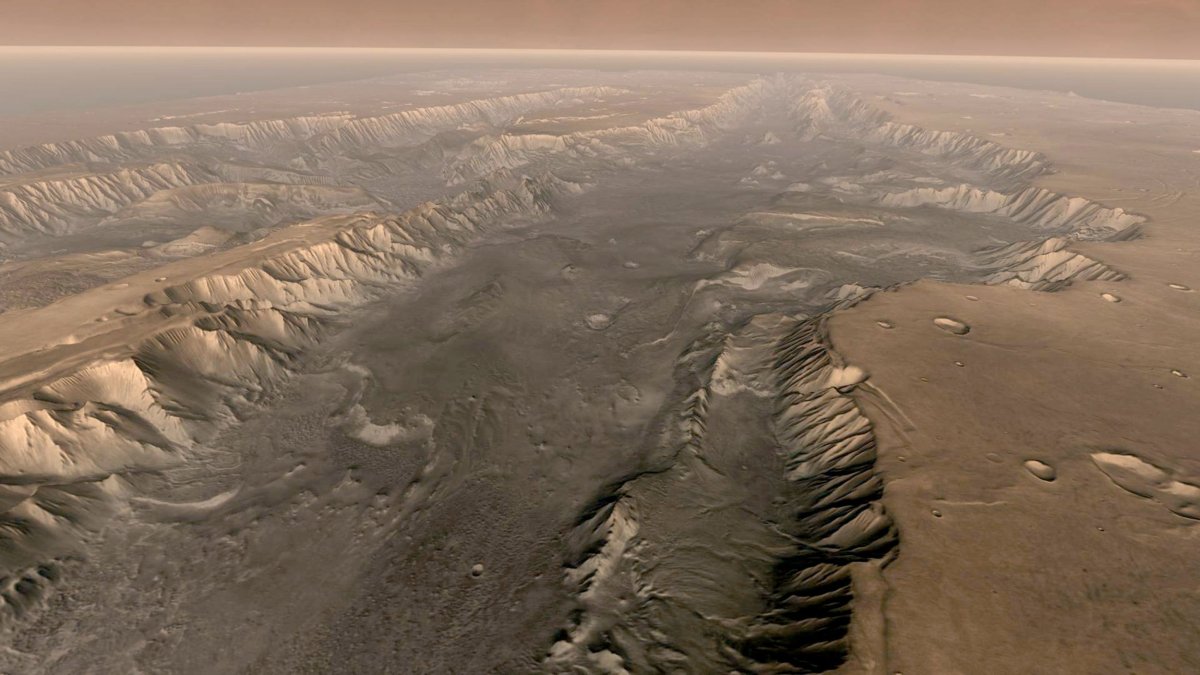Updated |A study published Thursday confirmed that the cracks identified on Mars's surface last year by the Curiosity rover are indeed evidence of ancient lakes that likely dried up about 3.5 billion years ago. The new study provides further evidence of what the climate on the Red Planet may have been like in its ancient past.
The study, published online in Geology, proved that cracks on Mars's surface previously photographed by Curiosity are indeed desiccation mudcracks which could have only been formed when wet sediment was exposed to the air. This conclusion was based on an analysis of a single area of rock known as "Old Soaker."
Researchers used the Curiosity rover and data from its many tools, particularly the Mars Hand Lens Imager, ChemCam Laser Induced Breakdown Spectrometer (LIBS) and the Alpha-Particle X-Ray Spectrometer (APXS) to study both the physical appearance and the chemistry of the rock, which is described as no bigger than a coffee table.
"The Curiosity Rover is an amazing tool because it is acting as a robotic field geologist, piecing together the clues left from an ancient lake system," lead study author Nathaniel Stein, a geologist at the California Institute of Technology in Pasadena, told Newsweek.

Related: Flowing Water On Mars? Groundbreaking NASA Discovery Was Just Sand And Dust Avalanches
The analysis revealed that cracks on the rocks were formed by exposure to air, rather than heat or the flow of water. In addition, the shape of the cracks suggests the occurrence of a single drying event on the planet, rather than multiple cycles of the planet getting wet and drying over. The position of the cracks, closer to the center of the ancient lake rather than along the edges, also suggests that the lake levels changed often, rising and falling dramatically over time.
"The mudcracks are exciting because they add context to our understanding of this ancient lacustrine system," Stein, said in a statement, referring to the ancient lake system on the planet.
Related: Boiling Water May Make Mars Sand Float-And It's Altering The Face Of The Red Planet
Scientists have known of the existence of ancient water on Mars for years. A 2015 NASA study that measured water signatures in Mars's atmosphere suggested that ancient oceans may once have had more water than our own Arctic Ocean. However, because the planet has less gravity and a thinner atmosphere than Earth, this water evaporated into space over the course of several billion years.
Water still exists on Mars in the form of ice. In 2015, NASA scientists found a slab of ice just beneath Mars's surface that was estimated to be as big as California and Texas combined.
Some have even suggested that there may still be liquid water flowing on Mars. In 2015 NASA announced that dark features that appeared to be running down slopes on Mars were running water. However, more recent research suggests that these darker slopes are just sand. This new research will help us better understand Mars's water system of both the past and perhaps the present.
"For the first time, we're able to investigate an ancient Martian lake in detail from the ground with the goal of understanding whether early Mars was habitable," Stein told Newsweek. "In that regard, these results improve our understanding of the structure and duration of these lakes and how they changed over relatively short timescales. As Curiosity continues its journey, we will try to refine our conceptual models of the lake system even more."
This article has been updated to include quotes from lead study author Nathaniel Stein.
Uncommon Knowledge
Newsweek is committed to challenging conventional wisdom and finding connections in the search for common ground.
Newsweek is committed to challenging conventional wisdom and finding connections in the search for common ground.
About the writer
To read how Newsweek uses AI as a newsroom tool, Click here.








